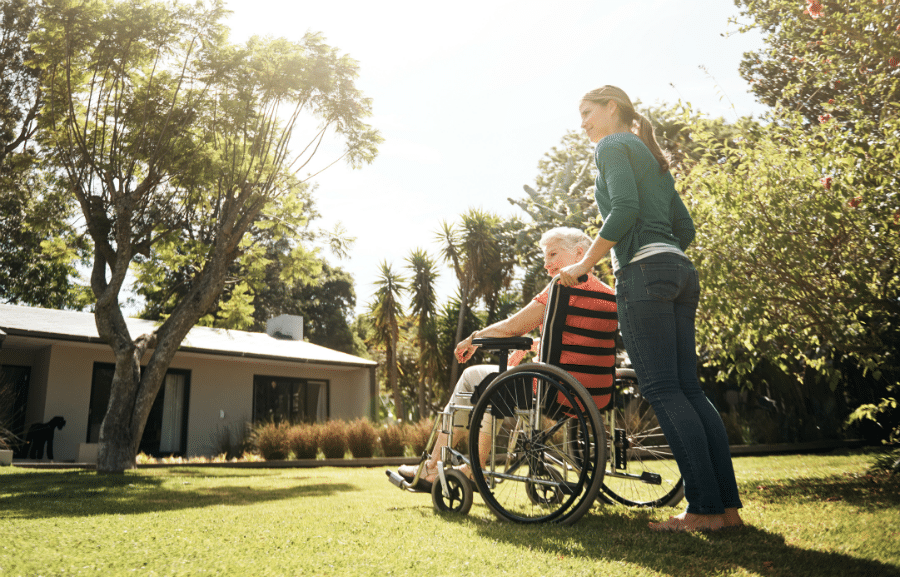We experience the world around us through our senses – through sight, sound, smell, taste and touch.
But people living with dementia can sometimes have difficulty interpreting the information coming to them through their senses because their sensory function may have deteriorated.
Sensory therapy involves carers activating one or more of a person’s senses, whether it be taste, smell, sight, sound or touch. It has been shown to improve the emotional and physical wellbeing of people living with dementia.
Sensory therapy can also help aged care staff develop a closer bond with the care recipient and help them develop a more person-centred approach to their care practice.
Using sensory therapy in aged care

Here are some ways that carers can help people living with dementia to use their different senses. By offering the opportunity to experience their environment, and perhaps talk about it, carers can improve the care recipient’s quality of life and help to calm those living with dementia.
Sometimes these activities may take place in a unique sensory room, or they can also be conducted in bedrooms or common rooms. They may be held in groups or one on one.
Touch
– Massage hands, the head, back and shoulders
– Provide manicures and washing hair can be a fantastic sensory activity
– Holding hands
– Provide experiences such as gardening and visits from small animals
– Provide interesting textures to touch, such as sandpaper, pine cones, and different types of fabric
Sight
– Train staff to be aware of lighting and the effect it may have on someone living with dementia
– Make the most of any views outside the window
– Present food so that it looks appealing on the plate, place contrasting colours side by side
– Help the person take pride in their appearance, with makeup, jewellery and clothing
– Decorate with indoors plants where appropriate
– Hang art and photographs around the home
– Play a favourite movie
– Perhaps the person would like to redecorate?
Taste
– Serve interesting and varied meals
– Offer new tastes, such as food from a different culture
– Provide unusual fruits and vegetables, as well as their favourites
– You can set up tasting activities, where the person has to choose if a food it sweet, sour, salty or bitter, and so on
Sound
– Take the time to sit and talk with the person
– Be aware of the sound and loudness of your voice – loud voices can cause people living with dementia to become agitated
– Play music and encourage dancing, clapping, singing, as well as simple listening
– Find out what types of music the person enjoys, and play that music
– Put on a concert
– Play tracks of natural sounds, such as a waterfall or gentle rainfall
– Have debates, games and quizzes
Smell
– Train staff to use pleasant aromas around the home, such as flowers or aromatherapy oils
– Lavender oil can have a calming effect and can be evaporated in an oil burner
– Use scented oils and lotions for massage
– Create a sensory garden with sweet-smelling flowers and herbs
– Talk about everyday smells, such as food cooking, coffee, or flowers
These are simple, person-centred ways you can stimulate the senses of people who are living with dementia and help them connect with the world around them, improving their quality of life, and helping to ensure they are calm and happy.